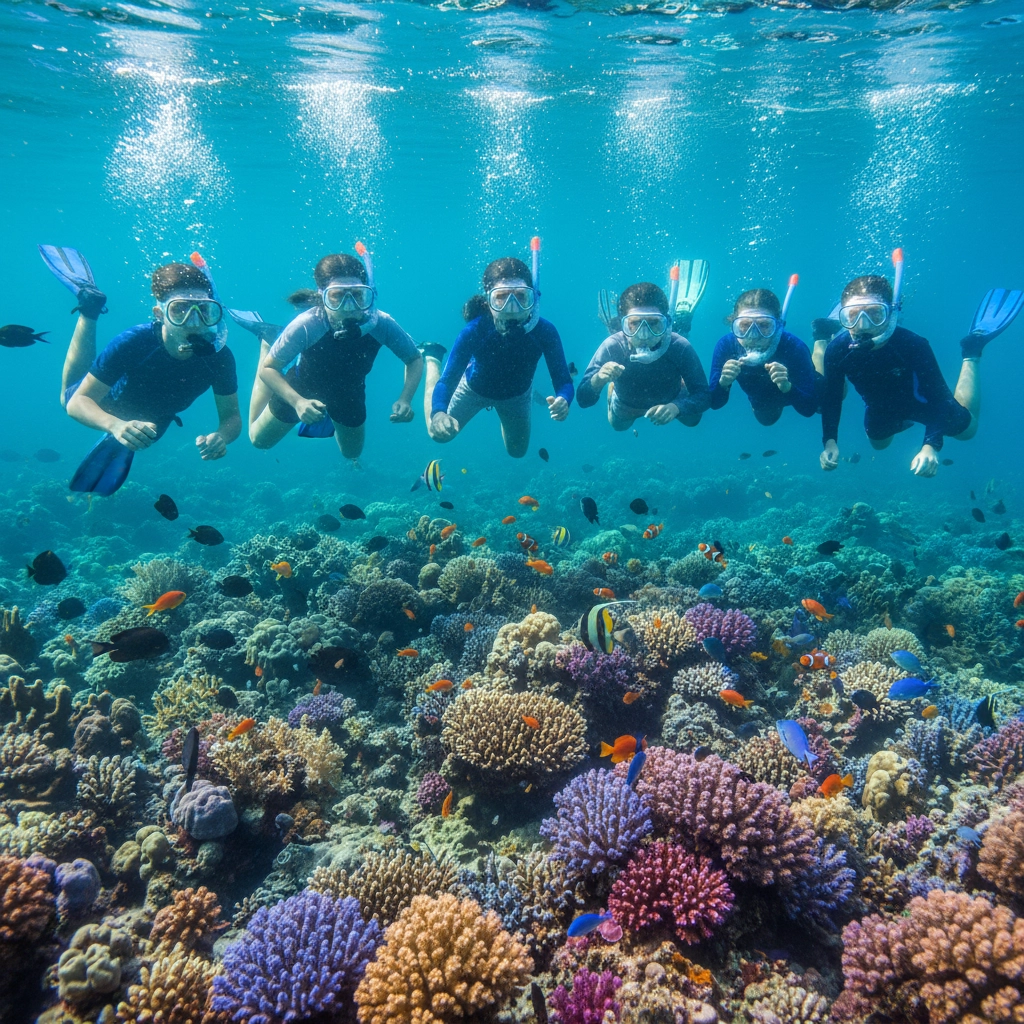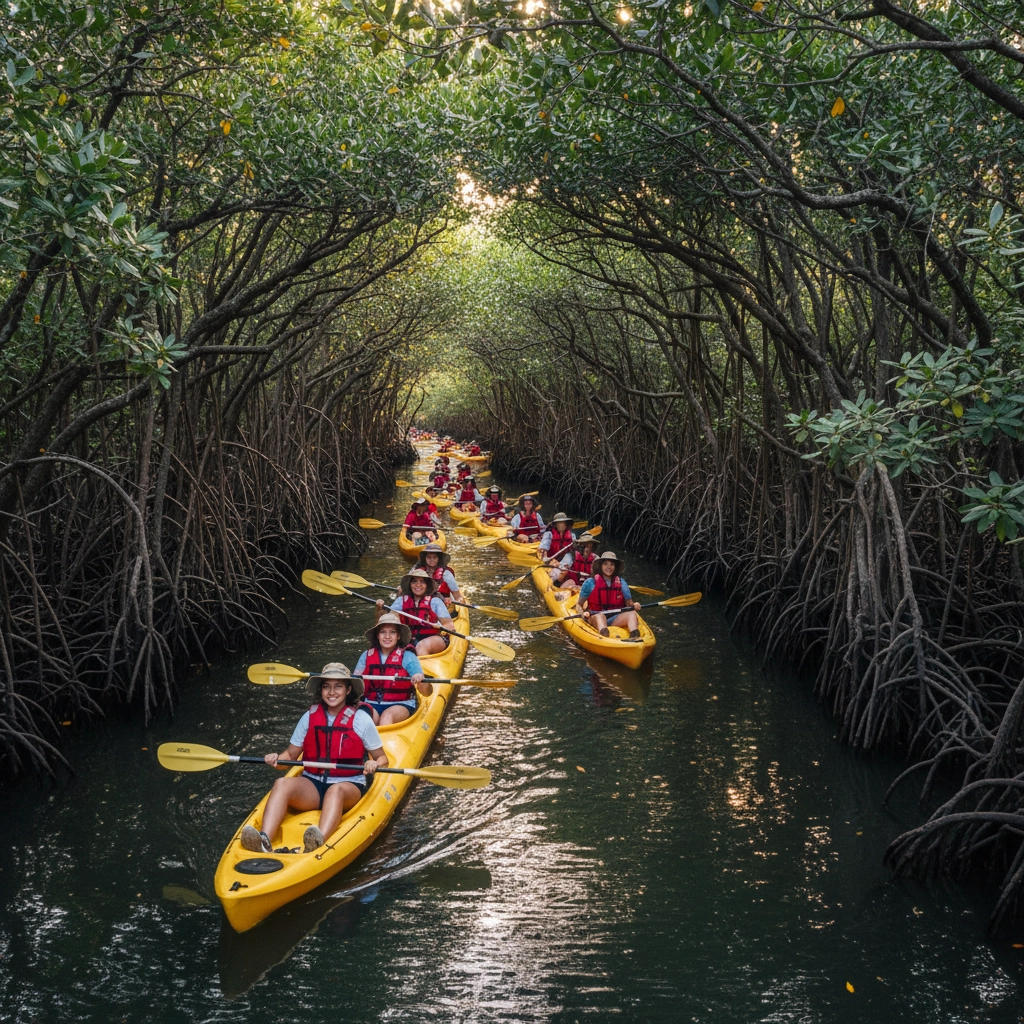Marine science trip Florida Keys
- Caleb Mullenix
- Oct 31, 2025
- 5 min read
Planning an effective marine science trip Florida Keys experience requires careful consideration of educational objectives, safety protocols, and the unique learning opportunities available in this extraordinary ecosystem. The Florida Keys offers unparalleled access to three distinct marine environments: coral reefs, seagrass beds, and mangrove forests: creating an ideal outdoor classroom for hands-on scientific exploration.
Understanding the Educational Value of Florida Keys Marine Science Programs
Establishing clear learning objectives forms the foundation of any successful marine science expedition. The Florida Keys provides students with direct access to the third-largest barrier reef system in the world, presenting authentic research opportunities that cannot be replicated in traditional classroom settings. Students engage with living coral ecosystems, observe complex symbiotic relationships, and participate in ongoing conservation efforts alongside professional marine biologists.
Begin by researching program options that align with your curriculum standards and grade-level requirements. Organizations such as Pigeon Key Marine Science Center offer comprehensive 3-day, 2-night programs starting at $540 per person, with teachers staying free. These programs have successfully served over 30,000 participants from more than 1,000 schools across the United States over two decades, demonstrating their commitment to quality educational experiences.

Essential Program Components for Meaningful Learning Experiences
Create an itinerary that incorporates multiple learning modalities to maximize student engagement and comprehension. Effective marine science trips Florida Keys programs should include the following core components:
Coral Reef Snorkeling Expeditions: Schedule guided snorkeling adventures to locations such as Sombrero Reef or John Pennekamp Coral Reef State Park. These experiences allow students to observe living coral polyps, tropical fish species, and complex ecosystem interactions in their natural environment. Emphasize the importance of reef conservation and the threats facing these fragile ecosystems.
Mangrove Ecosystem Exploration: Organize kayaking expeditions through mangrove tunnels where students can observe unique adaptations of species such as mangrove tree crabs, upside-down jellyfish, manatees, and various bird species. Discuss the critical role mangroves play in coastal protection and nursery habitat provision.
Marine Research and Data Collection: Engage students in authentic scientific research through water quality monitoring, coral health assessments, and citizen science projects. Students should learn to collect data systematically, analyze findings, and contribute to ongoing research initiatives.
Wildlife Rehabilitation Centers: Include visits to marine animal hospitals and rehabilitation facilities where students can observe rescue operations and learn about conservation threats facing marine wildlife. These experiences provide valuable context about human impacts on marine ecosystems.
Safety Protocols and Risk Management Considerations
Ensuring the safety of students participating in marine science activities is of paramount importance and requires comprehensive preparation and vigilance. Begin by conducting thorough risk assessments for all planned activities, paying particular attention to water-based excursions and wildlife interactions.
Advise students about proper swimming abilities and water safety protocols well in advance of the trip. Create detailed emergency procedures for various scenarios, including severe weather conditions, marine animal encounters, and medical emergencies. Share these procedures with all chaperones and ensure multiple staff members are trained in CPR and first aid.
Emphasize the importance of sun protection in the subtropical Florida Keys environment. Require students to bring wide-brimmed hats, long-sleeved UV protection shirts, and reef-safe sunscreen. Discuss the environmental impact of chemical sunscreens on coral reefs and educate students about sustainable alternatives.

Selecting Appropriate Program Providers and Facilities
Research program providers extensively to ensure they meet educational standards and maintain proper safety certifications. Organizations such as Mote Marine Laboratory & Aquarium provide programs led by experienced educators with access to world-class research facilities. Their programs align with Florida State Science Standards and offer flexible scheduling options to accommodate various educational objectives.
Dolphins Plus offers educational field trips featuring responsible wildlife interactions, classroom presentations, and behind-the-scenes tours. Their programs cover essential topics including Florida Keys ecology, conservation practices, marine invertebrate studies, and animal care protocols.
Ensure that all selected program providers maintain appropriate insurance coverage, possess valid operating permits, and employ certified marine science educators. Request detailed program descriptions, safety protocols, and emergency procedures from potential providers during the selection process.
Pre-Trip Preparation and Student Readiness
Prepare your students thoroughly to maximize learning opportunities during your marine science trip Florida Keys experience. Begin preparation several weeks before departure by introducing key concepts related to marine biology, coral reef ecology, and conservation science.
Create pre-trip assignments that encourage students to research specific species they may encounter, conservation challenges facing marine ecosystems, and the role of scientific research in environmental protection. Encourage students to develop research questions they can investigate during the trip.
Discuss appropriate behavior and etiquette for interacting with marine wildlife and fragile ecosystems. Emphasize the "look but don't touch" principle and explain how human contact can damage coral polyps and stress marine animals. Share guidelines for responsible snorkeling and kayaking practices.

Maximizing Educational Impact Through Structured Learning Activities
Design structured learning activities that reinforce educational objectives throughout the trip experience. Encourage students to maintain detailed field journals documenting their observations, data collection, and reflections on daily experiences.
Organize evening reflection sessions where students can process their experiences, discuss scientific observations, and connect field experiences to classroom learning. These sessions provide opportunities to address questions, clarify concepts, and prepare students for subsequent activities.
Assign specific roles to different students during research activities, such as data recorder, photographer, sample collector, and safety monitor. This approach ensures active participation from all students while developing teamwork and leadership skills.
Create assessment opportunities that align with your educational objectives, such as species identification challenges, water quality data analysis, or conservation project presentations. These activities demonstrate learning outcomes while maintaining student engagement.
Post-Trip Follow-Up and Continued Learning
Extend the educational impact of your marine science trip Florida Keys experience through comprehensive post-trip activities. Encourage students to share their experiences with younger students, create presentations for parents and community members, or develop action plans for local environmental conservation efforts.
Connect trip experiences to ongoing classroom instruction by referencing field observations during related lessons. Use photographs and data collected during the trip to illustrate scientific concepts and reinforce learning objectives throughout the academic year.
Consider establishing ongoing partnerships with marine science organizations visited during the trip. Many facilities offer virtual programs, research collaboration opportunities, or pen-pal programs that maintain student engagement with marine science beyond the initial trip experience.

Planning Considerations and Logistics
Schedule your marine science trip Florida Keys experience during optimal weather conditions, typically avoiding hurricane season (June through November) when possible. Spring and early fall provide excellent weather conditions for outdoor activities while avoiding peak tourist seasons.
Budget considerations should include transportation, accommodation, program fees, meals, and emergency funds. Many programs offer group discounts and teacher-free ratios that can help manage costs. Consider fundraising opportunities or grant applications to support student participation.
Communicate extensively with parents regarding trip expectations, safety protocols, required equipment, and educational objectives. Provide detailed itineraries, packing lists, and emergency contact information well in advance of departure.
Transformative Learning Through Marine Science Education
Marine science trips to the Florida Keys create transformative learning experiences that inspire students to become environmental stewards and pursue careers in marine science. These experiences demonstrate the interconnectedness of marine ecosystems and human activities while providing authentic scientific research opportunities.
By following comprehensive planning protocols, emphasizing safety and preparation, and selecting appropriate educational partners, educators can create meaningful learning experiences that extend far beyond the classroom. Students return from these experiences with deeper appreciation for marine ecosystems, enhanced scientific literacy, and motivation to protect our ocean resources.
For educators seeking expertly guided marine science experiences, Appleseed Expeditions provides comprehensive educational travel programs designed to maximize learning outcomes while ensuring student safety and engagement. Their experienced team understands the unique requirements of educational travel and works closely with educators to create customized experiences that align with curriculum objectives and inspire lifelong learning.



Comments